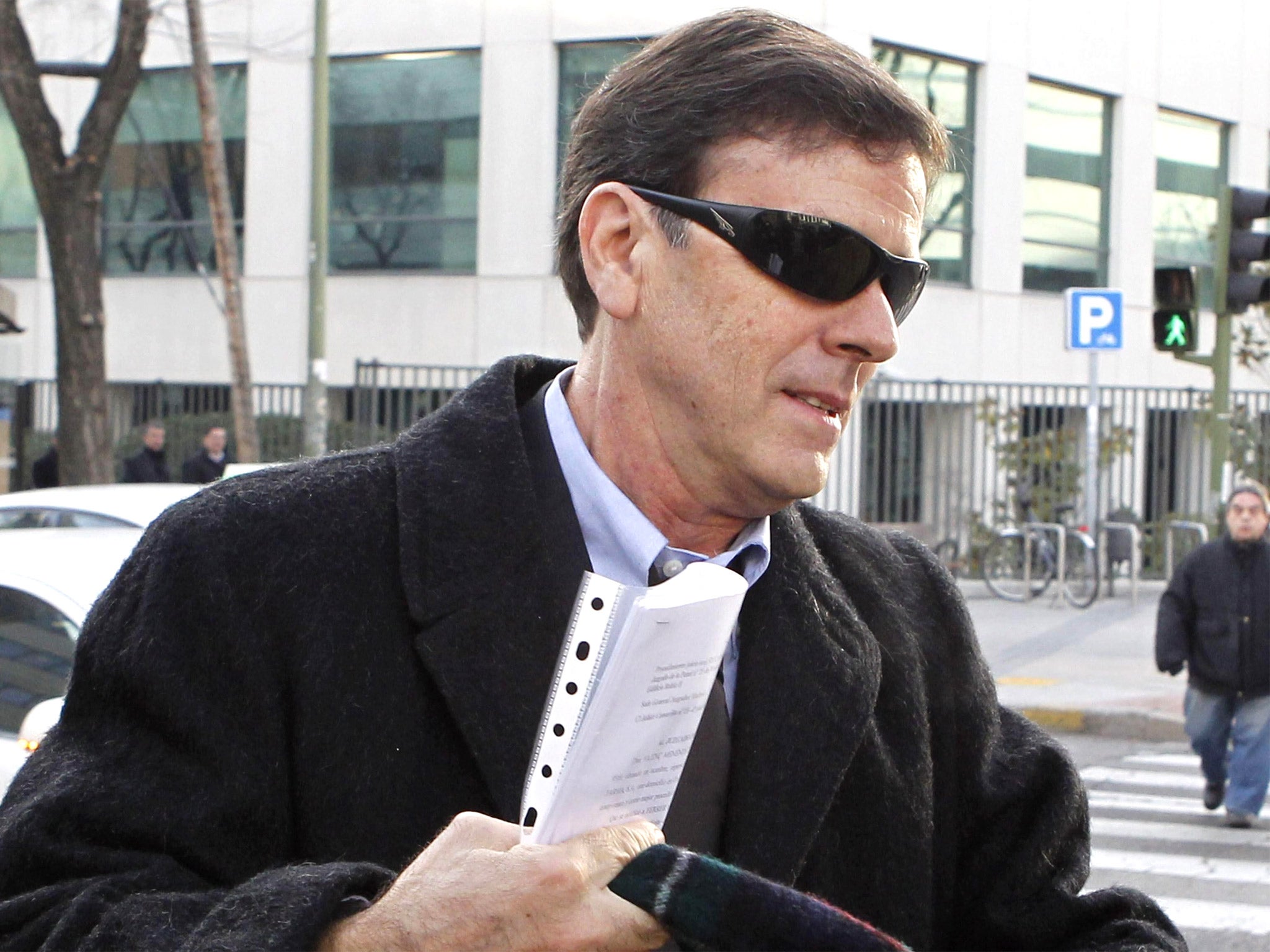Football accused of lagging behind in the war on drugs by head of world ant-doping watchdog
There is not enough testing in football

Your support helps us to tell the story
From reproductive rights to climate change to Big Tech, The Independent is on the ground when the story is developing. Whether it's investigating the financials of Elon Musk's pro-Trump PAC or producing our latest documentary, 'The A Word', which shines a light on the American women fighting for reproductive rights, we know how important it is to parse out the facts from the messaging.
At such a critical moment in US history, we need reporters on the ground. Your donation allows us to keep sending journalists to speak to both sides of the story.
The Independent is trusted by Americans across the entire political spectrum. And unlike many other quality news outlets, we choose not to lock Americans out of our reporting and analysis with paywalls. We believe quality journalism should be available to everyone, paid for by those who can afford it.
Your support makes all the difference.Football must do more to combat the threat of performance enhancing drugs, according to the head of the world's anti-doping watchdog. John Fahey, president of the World Anti-Doping Agency, warned that neither football nor tennis are conducting enough tests or using broader intelligence to effectively fight a menace the Australian believes is "on the rise" again.
Fahey's views were furthered by David Howman, Wada's chief executive, who feels the Premier League must implement more widespread testing. Fahey held up baseball in the United States, where every Major League player is tested four times a season, as an example of a programme that should be more widely adopted.
While cycling's authorities have attracted a flood of criticism for what Fahey termed their "inept" attempts to deal with the fallout from the Lance Armstrong affair, he stressed all sporting bodies have to be more forthright in fighting the problem.
"Whatever the sport, wherever it is in the world, more can be done," said Fahey. "I saw some examples recently, in tennis, where senior players were saying they were not tested terribly regularly. I would say tennis can do more, as can football.
"Football is not testing enough for EPO. They can do more and we are encouraging them to do more. And use intelligence, not just tests. We now know the athlete's biological passport is a very effective tool. Why isn't football using it?
EPO boosts an athlete's endurance and is one of the most widely used drugs by dopers. Its presence is detected via urine tests but, according to Wada, tests for EPO are not done regularly enough in football. Fifa have released figures for 2012 – it conducted 662 tests at their own competitions of which "95 sought to test for EPO." Football's governing body also said it had "plans for a biological profile".
Howman used the example of baseball, a sport recently dogged by doping controversies, as one that has put in place a wide-ranging doping programme. He said: "Major League Baseball now do more testing and are doing more analysis of more substances than many international sports federations. Each baseball player on the roster of a Major League team is tested four times a year.
"If you transfer that approach to the Premier League, and ask whether every player in the Premier League had been tested four times in a year, I think we all know what the answer is. Team sports players can go their entire career without being tested once. That's an initiative by MLB that ought to be taken up by others."
Last week, Arsène Wenger called for wider testing in football, while the issue was also highlighted through the trial of Dr Eufemiano Fuentes in Madrid. So far only cyclists have been named in conjunction with the trial, but Fuentes is known to have helped other athletes dope, including, it is claimed, a number of footballers.
More than 200 bags of blood have been seized as evidence. Fuentes knows the identity of all the athletes whose bags are held but the judge has so far refused to insist he name them. Wada's lawyers are still pushing for the names to be revealed. "Sport deserves to know who those blood bags belong to," said Fahey.
Spain's anti-doping agency is already investigating claims by a former president of Real Sociedad last week that its players used performance-enhancing substances.
Join our commenting forum
Join thought-provoking conversations, follow other Independent readers and see their replies
Comments